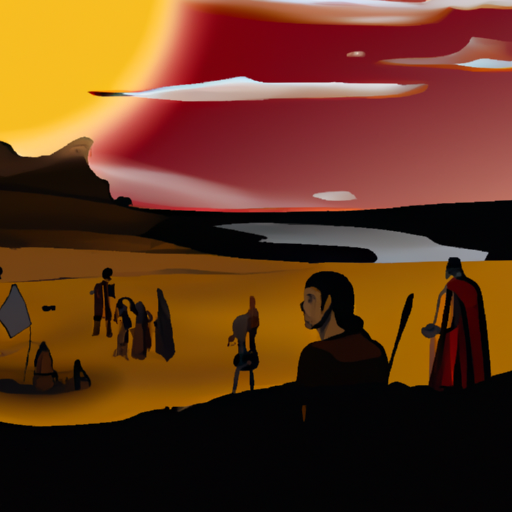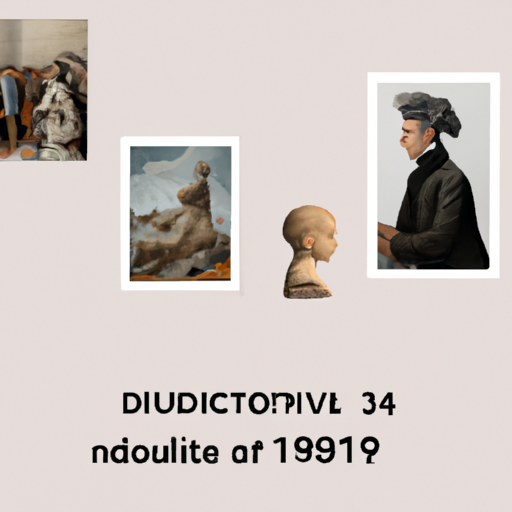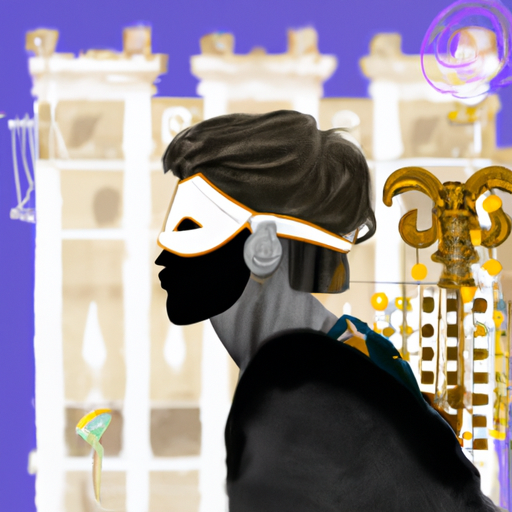History of Religion in Victorian England
Discover the mysteries of Victorian England and its spellbinding religious roots! Unveil the secrets of a bygone era, where faith and tradition intertwined to create a unique culture. Delve into the past and explore what made this period so special – from its spiritual heritage to its social customs. Uncover the intricate details of how religion shaped everyday life in this remarkable time in history.
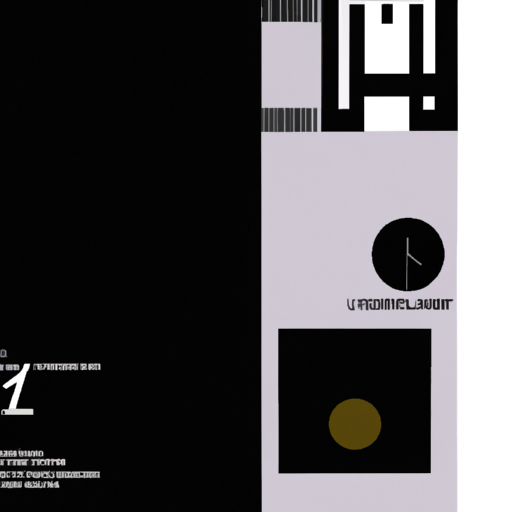
Unearth the secrets of a bygone era, when Victorian England was steeped in religious tradition! This period saw an abundance of spiritual practice and faith, with religion having an undeniable sway over everyday life. From rituals to beliefs, delve into the unique customs that made this chapter in history so captivating. Uncover how faith impacted social norms and discover the mysteries of this enthralling time!
.
Introduction
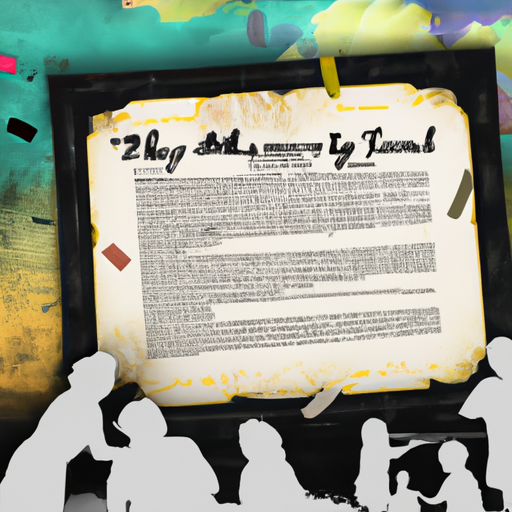
In the Victorian era, a time of profound transformation, the Church of England was firmly planted in society as the established church. Though it maintained a paramount role, other denominations were also present. An upsurge in non-conformist religions like Methodism, Quakerism and Unitarianism arose. Simultaneously, new religious movements such as Spiritualism and Theosophy began to take shape. Additionally, some individuals found themselves captivated by ancient pagan beliefs and practices. All in all, religion during this period was multifarious and ever-changing.
– History of Religion in Victorian England
The multifaceted history of religion in 19th-century England is an absorbing one. During this era, the Church of England was the established church and other Protestant denominations were present. The Roman Catholic Church had been reinstated by law in 1850 and Jews were granted full civil rights. Although Eastern faiths such as Hinduism and Buddhism were not widely practiced, they did have a presence.
Religion held a significant place in Victorian England, socially and politically. The Church of England was connected to the monarchy and aristocracy; its beliefs impacted many areas from education to legislation. In contrast, nonconformist Protestant denominations offered spiritual alternatives for those who chose not to be part of the official church structure. Roman Catholicism was mainly found in rural regions and working-class urban neighborhoods.
The Victorians viewed themselves as enlightened people who appreciated religious tolerance and diversity; however, there were still conflicts between different religious groups throughout this period. Certain sections of society still harbored anti-Catholic sentiments while Jews had to endure discrimination due to their outsider status. Despite these issues, religion remained a formidable force in influencing the culture and politics of Victorian England.
– Religious Practices in Victorian England
Religious practice in Victorian England was an integral part of the era’s history, pervading daily life and impacting many facets of society. During this time, the Church of England held a preeminent place as the country’s official religion, with other denominations such as Roman Catholicism, Methodism, Unitarianism and Quakerism also being practiced. Established by Henry VIII during the Reformation, the Church of England had a strong presence in English culture throughout the Victorian period; its sway extended to education, social welfare and politics. Most citizens attended Sunday services featuring prayers, hymns, sermons and scripture readings; special services were also held for weddings and funerals.
Despite their shared belief in God and similar moral values, other religious groups were not typically embraced with the same acceptance or influence as the Church of England. Roman Catholics faced discrimination due to their ties to foreign nations like France or Italy; Methodists catered mainly to working-class communities; Unitarians rejected traditional Christian teachings; while Quakers championed pacifism and gender equality. Nevertheless, religion was a major force in Victorian England that left an indelible imprint on culture, politics, education, morality – even everyday life – for many people living during this period.
– Impact of Religion on Victorian Society
Religion’s far-reaching impact on Victorian society was palpable, going back to the time of Queen Victoria in the 19th century. In those days, religion was an ingrained part of life, influencing politics, education and social behaviour. Christianity held sway as the dominant faith in England and its values were reflected across many aspects of society, with the Church of England established as the official state church and holding considerable power over public affairs. This even extended to legislation around marriage, divorce and inheritance. Education too was deeply affected by religion; most schools were run by religious organisations such as the Church of England or other denominations.
Literature during this era also saw a strong religious influence, with many authors writing works that explored spiritual themes or contained moral messages reflecting their faith. Charles Dickens’ novels often featured Christian elements like redemption and grace which resonated with his Victorian readership. Art too bore witness to religion’s presence; numerous painters depicted biblical scenes or created pieces celebrating religious figures or events.
Beyond politics and culture, religion had a significant effect on everyday life for many people at this time – prayer meetings were frequently held in homes or churches while attendance at Sunday services was expected from all members of society regardless of faith (or lack thereof). This pervasive presence meant that it had a powerful influence on how people lived their lives and interacted with one another.
In conclusion, religion played an integral role in shaping Victorian society and left an enduring legacy which can still be felt today.
– Role of the Church in Victorian England
The Church was a pervasive force in Victorian England, its impact felt far and wide. From providing spiritual guidance and moral education to offering comfort and solace during times of crisis, the Church’s presence was undeniable. Established as the official state religion, Anglican churches were given preferential treatment over other denominations, resulting in their widespread growth and influence. This influence extended to Parliament itself, with religious beliefs and teachings playing a major role in shaping legislation regarding marriage and divorce.
In addition to its political clout, the Church also had a strong presence in everyday life for Victorians. Towns typically had at least one church or chapel that served as a hub for community activities such as festivals or charity events. It was also common for people to attend services on Sundays or special occasions such as Christmas or Easter. These services usually included prayers, hymns, sermons and readings from scripture.
The importance of the Church in Victorian England cannot be understated; it played an integral part in both politics and culture during this period. Its legacy has been reflected throughout history; without the Church’s influence during this time, society would have looked very different indeed!
– Evolution of Religious Beliefs in Victorian England
The Victorian era saw a perplexing shift in religious beliefs, with the Church of England still dominating, but a surge in progressive forms of Christianity and an intrigue in non-Christian faiths such as Buddhism and Hinduism. This evolution had a substantial effect on how people perceived their faith and how it related to their lives. Initially, traditional Anglican values were largely embraced without hesitation; however, evangelicalism began to take hold, promoting an intimate relationship with God and individual spiritual growth.
Simultaneously, there was an expanding interest in non-Christian religions that had been present for centuries yet had not been widely accepted. To address this curiosity, some churches incorporated aspects from these religions into their services or even held joint services between different denominations. This provided a more inclusive atmosphere where people could explore different beliefs without fear of judgement or ostracization.
By the end of the Victorian period, religious belief had become much more varied than before. Even though traditional Anglicanism still maintained its power over most of society, other types of Christianity were becoming increasingly popular and non-Christian faiths were gaining acceptance too. This move towards greater diversity represented a significant step forward for religious freedom in England and set the stage for further progress in later years.
conclusion
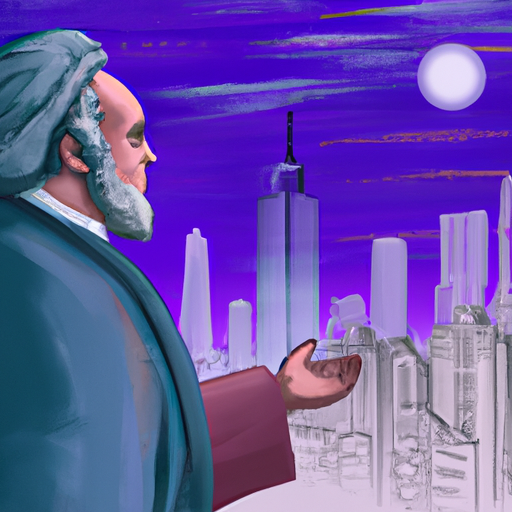
Amidst the Victorian period, the Church of England was established as the primary faith, with other beliefs such as Roman Catholicism, Presbyterianism and Methodism scattered across certain regions. Though a minority, some practiced non-Christian religions like Judaism.
.
Some questions with answers
Q1. What religion was predominant in Victorian England?
A1. The predominant religion in Victorian England was Anglicanism, also known as the Church of England.
Q2. How did the Church of England influence the government?
A2. The Church of England had a great influence on the government during this period, as it was established by law and its bishops held seats in the House of Lords.
Q3. What other religions were present in Victorian England?
A3. Other religions present in Victorian England included Roman Catholicism, Judaism, Islam, and various Protestant denominations such as Presbyterianism and Methodism.
Q4. How did people practice their faith in Victorian England?
A4. People practiced their faith through attending church services, participating in religious festivals and rituals, and observing religious holidays.
Q5. How did religion affect daily life in Victorian England?
A5. Religion affected daily life in many ways; for example, most businesses closed on Sundays out of respect for religious observance, and many public events were cancelled on religious holidays.



